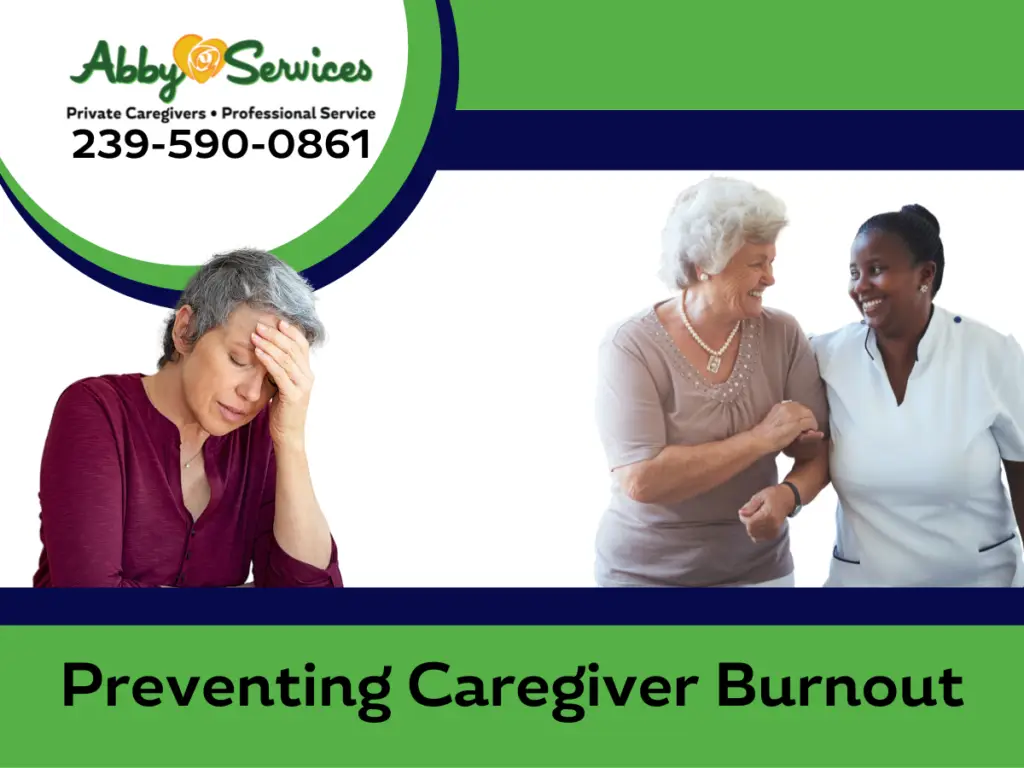Practical advice to prevent caregiver burnout
It is important to prevent caregiver burnout. Those experiencing a short-term or extended illness can often feel helpless.
Depending on the situation they may not be able to care for themselves independently. Often the responsibility of assistance falls on a spouse, family member, or loved one.
While those receiving care and support are no doubt grateful, often those providing care and assistance can experience substantial fatigue and caregiver burnout.
In order to be effective caregivers, and in turn, be there for those they care for, caregivers must consider their own health as well as their physical and mental wellbeing.
All too often those providing essential care neglect themselves and run the risk of encountering a situation where, because they didn’t take the time to focus on themselves, are no longer able to serve as a caregiver for those who need them. This is commonly referred to as caregiver burnout
A caregiver may not even recognize that their wellbeing is compromised, therefore it is important to watch for these signs of caregiver burnout:
- Becoming easily irritated or angry
- Feeling sad
- Having frequent headaches, bodily pain, or other physical problems
- Feeling overwhelmed or continually worried
- Often feeling tired
- Getting too much sleep or not enough sleep
- Gaining or losing weight
- Losing interest in activities you used to enjoy
- Abusing alcohol or drugs, including prescription medications
When these symptoms of caregiver burnout are identified it is imperative that the caregiver take a moment to reevaluate how they are managing the situation they are working to help.
When neglected, caregiver burnout can compromise the care of the individual they are assisting, as well as their own wellbeing.
The Mayo Clinic recommends the following Strategies to help manage caregiver burnout:
- Accept help. Be prepared with a list of ways that others can help you, and let the helper choose what he or she would like to do. For instance, a friend may offer to take the person you care for on a walk a couple of times a week. Or a friend or family member may be able to run an errand, pick up your groceries or cook for you. This is an effective proactive step to prevent caregiver burnout.
- Focus on what you are able to provide. It’s normal to feel guilty sometimes, but understand that no one is a “perfect” caregiver. Believe that you are doing the best you can and making the best decisions you can at any given time.
- Set realistic goals. Break large tasks into smaller steps that you can do one at a time. Prioritize, make lists and establish a daily routine. Begin to say no to requests that are draining, such as hosting holiday meals.
- Get connected. Find out about caregiving resources in your community. Many communities have classes specifically about the disease your loved one is facing. Caregiving services such as transportation, meal delivery, or housekeeping may be available.
- Join a support group. A support group can provide validation and encouragement, as well as problem-solving strategies for difficult situations. People in support groups understand what you may be going through. A support group can also be a good place to create meaningful friendships.
- Seek social support. Make an effort to stay well-connected with family and friends who can offer nonjudgmental emotional support. Set aside time each week for connecting, even if it’s just a walk with a friend.
- Set personal health goals. For example, set goals to establish a good sleep routine, find time to be physically active on most days of the week, eat a healthy diet, and drink plenty of water.
- Sleep to prevent caregiver burnout. Many caregivers have issues with sleeping. Not getting quality sleep over a long period of time can cause health issues. If you have trouble getting a good night’s sleep, talk to your doctor.
- See your doctor. Get recommended vaccinations and screenings. Make sure to tell your doctor that you’re a caregiver. Don’t hesitate to mention any concerns or symptoms you have.
It may be hard to imagine leaving your loved one in someone else’s care, but taking a break can be one of the best things you do for yourself — as well as the person you’re caring for.
- In-home respite. Health care aides come to your home to provide companionship, nursing services, or both. This can be provided through state-licensed and supervised services.
- Adult care centers and programs. Some centers provide care for both older adults and young children, and the two groups may spend time together.
- Short-term nursing homes. Some assisted living homes, memory care homes and nursing homes accept people needing care for short stays while caregivers are away.
The medical marijuana community may also have resources available which should be considered including support groups for caregivers, listings of medical practitioners, as well as locations to obtain products.
Those using Medical Marijuana to manage symptoms may also have a registered caregiver who can help them legally obtain and possess the products they need. Knowing how to legally register as a caregiver can also help to alleviate stress. Information on registering as a caregiver for purposes of medical marijuana can be found through the Florida Department of Health.
The many demands involved with caregiving can strain even the strongest person. Ultimately it is extremely important to take advantage of the many resources and tools available to help caregivers provide care for their loved ones. It is only through caring for themselves that caregivers can effectively care for others.
-This article was submitted by Scott Strachan an RN and owner of Abby Services. Abby Services is a Nurse Registry that helps connect clients with safe reliable caregivers. If you or a loved one have questions about how Abby Services can help please call 239-590-0861.
